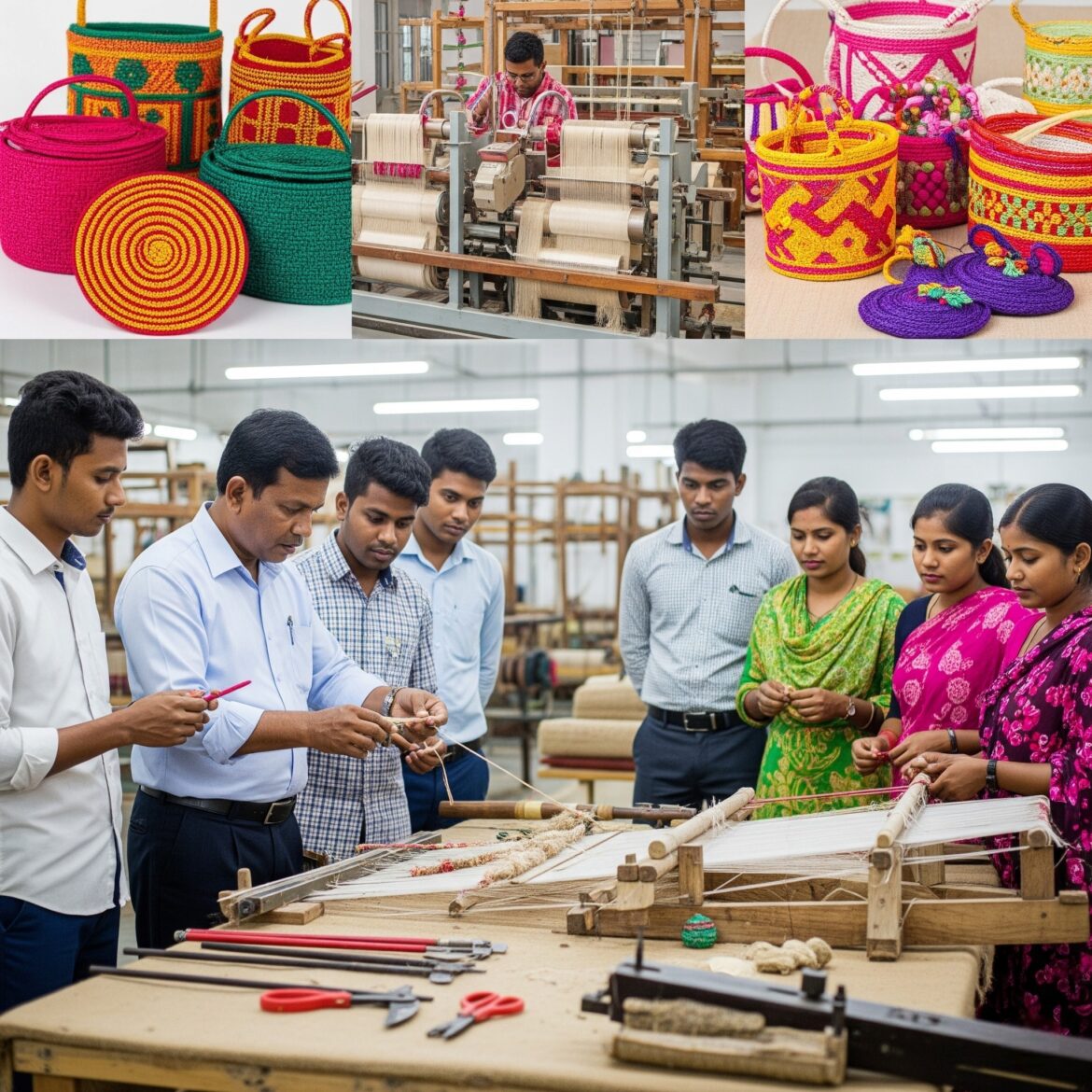Bangladesh’s historic jute industry is embarking on a transformative journey, revitalised by a pioneering worker training initiative designed to propel it into a new era of efficiency and global competitiveness. This collaborative effort is empowering the workforce with modern skills, ensuring the sector not only meets evolving global demands but also strengthens Bangladesh’s position as a leader in sustainable jute products. At the heart of this revitalization is an innovative workplace-based training (WBT) model, a partnership between the Swisscontact BYETS project (funded by the Embassy of the Kingdom of Netherlands), Akij Bashir Group, and SGS, the organization delivering the training. This unique approach combines essential theoretical knowledge with hands-on practical application directly on the factory floor, specifically targeting operations for critical machinery like Spreader, spinner, rollwinder, and breaker machines. The collaborative development of customized training materials, a significant achievement given the prior absence of such resources, ensures the program is precisely tailored to the industry’s unique needs, covering technical skills, quality control, and efficient production techniques. The primary goal of this initiative is to revolutionize the jute sector by addressing long-standing challenges, such as outdated processing techniques and an overreliance on raw jute exports. By upskilling its workforce, the industry aims to shift its focus towards producing higher-value finished goods, which promises increased revenue and greater economic contribution. This strategic pivot is vital as global demand for eco-friendly products, including jute, continues to grow. The impact on workers is profound, providing them with enhanced understanding and practical expertise that can be immediately applied. This empowers them with the skills necessary to adapt to modern industrial practices, improving their productivity and the overall quality of jute products. The program’s initial focus on training ‘master trainers’ within factories is particularly forward-looking, laying the groundwork for a self-sustaining and continuous learning environment where workers can continually upskill and re-skill to ensure long-term industry competitiveness. Thanks to these committed efforts, the jute industry in Bangladesh is evolving into a more modern sector, while also developing a workforce that is more skilled, flexible, and strong. This pioneering training initiative exemplifies a constructive development that promises to unlock the full potential of Bangladesh’s golden fiber, securing a prosperous future for the industry and its thousands of workers.
Revitalising Bangladesh’s Jute Industry Through Pioneering Worker Training
47


